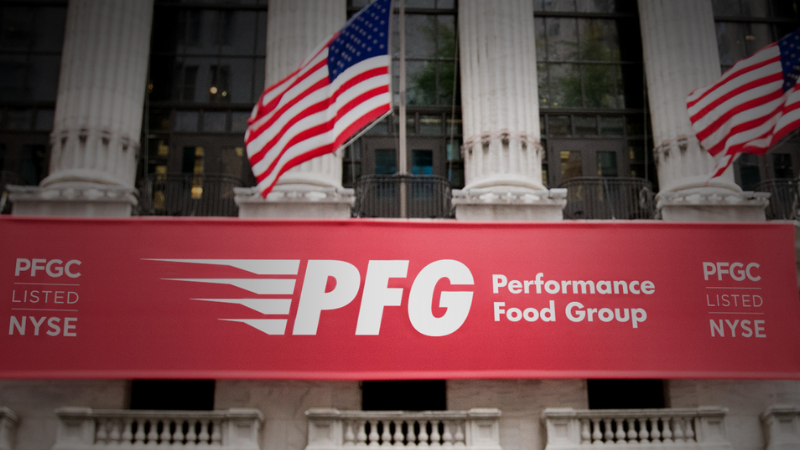
CHICAGO, June 2, 2025 — Broadline distributor Performance Food Group (PFG) has grown rapidly in recent years through a combination of acquisitions and deeper penetration of the food-away-from-home market. Now the multibillion-dollar company is looking to add momentum by redefining what a distributor does.
Here are three ways the company is changing the model, as PFG revealed during its “Investor Day” on Monday.
The distributor as manufacturer
There’s nothing unusual about a large-sized distributor offering its own line of products to compete with well-known (and hence pricier) brands. The usual approach is to have a manufacturer produce the higher-margin proprietary items under a private-label arrangement.
But PFG is looking to do more of the manufacturing itself. It already produces 20% of the popcorn that’s consumed in the United States, including what’s sold in movie-theater concessions supplied by the distributor’s specialty arm. Now it’s also popping the kernels in oil it manufactures itself.
Similarly, some of the coffee sold by PFG is roasted by the company.
More vertical integration will allow the company to offer turnkey foodservice operations to businesses outside the food-away-from-home mainstream, PFG President and COO Scott McPherson told the investors in attendance.
He recounted how PFG became the breakfast-sandwich supplier for an unnamed convenience-store chain by formulating a version of better quality than what competitors offered. About 2 million of the sandwiches have been sold to the customer to date, according to McPherson.
“This isn’t a big part of our business,” or at least not yet, he commented. “We think of it as our little secret weapon where we can create unique brands for our customers.”
All told, PFG currently has 25,000 proprietary brands, including several types of pizza cheeses it produces itself. Collectively, they generate about $7.4 billion in annual sales, according to the company.
The distributor as e-commerce option
Traditional distributors have been feeling considerable competition in recent years from online suppliers copying Amazon’s e-commerce model. Foodservice operators place an order digitally for an item and have it delivered directly to their door the next day or so.
PFG has decided there’s no reason it can’t do the same. It’s blazed an alternate supply process whereby a business or even a consumer can place a small order and have the parcel delivered via UPS, Fedex, or the U.S. Postal Service. The shipment usually arrives within 1.5 days, according to McPherson.
He cited PFG’s e-commerce business as a significant sales opportunity.
The distributor as a human/tech sales hybrid
McPherson and other executives repeatedly cited the benefits PFG has garnered from its embrace of technology. An AI application, for instance, now suggests what additional products would be logical complements to whatever the customer is ordering. In 15% of those instances, the buyer indeed adds to his or her order.
Overall, a patron who exclusively interacts with PFG digitally tends to order 5% more cases, McPherson noted.
But, he explained, that number troubles him. Customers who both use a digital connection and have a sales representative call on them tend to order 8% more product.
“We are not in a digital-only world,” said McPherson.
He spoke to a roomful of financial analysts and portfolio managers who were there to hear how PFG expects the distribution business and the industries it serves to change in the near and mid-terms.
The distributor's c-suite obliged them with a projection that sales for the current fiscal year should total between $63 billion and $65 billion. Yet they went further and offered a three-year projection, an unusually long perspective for guidance from a public company.
The executives said they anticipate sales for fiscal 2028 to land between $73 billion and $75 billion.
PFG is now regarded as the foodservice industry’s second-largest broadline distributor, behind Sysco Corp.
As Managing Editor for IFMA The Food Away from Home Association, Romeo is responsible for generating the group's news and feature content. He brings more than 40 years of experience in covering restaurants to the position.